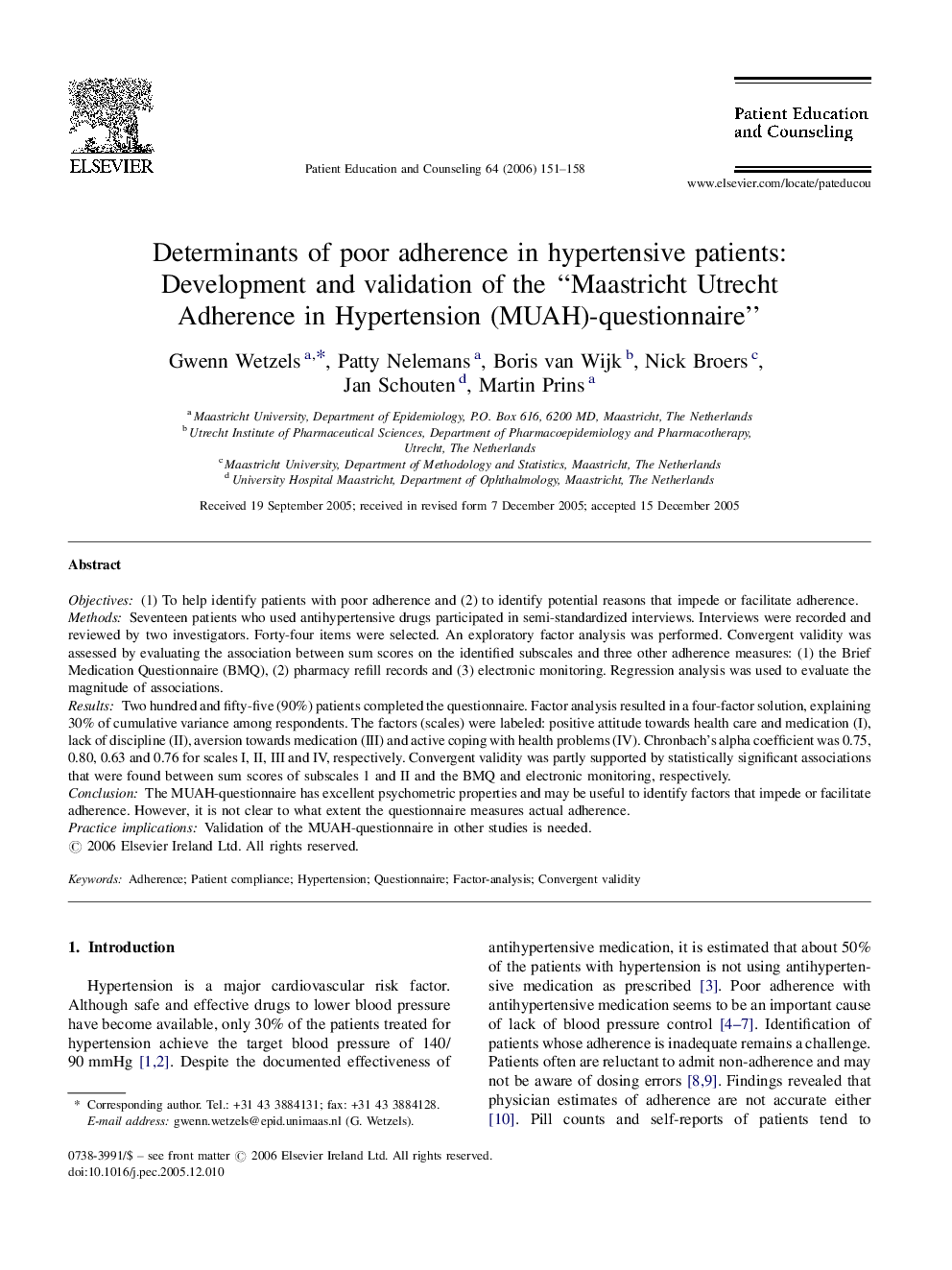| کد مقاله | کد نشریه | سال انتشار | مقاله انگلیسی | نسخه تمام متن |
|---|---|---|---|---|
| 3816698 | 1597708 | 2006 | 8 صفحه PDF | دانلود رایگان |

Objectives(1) To help identify patients with poor adherence and (2) to identify potential reasons that impede or facilitate adherence.MethodsSeventeen patients who used antihypertensive drugs participated in semi-standardized interviews. Interviews were recorded and reviewed by two investigators. Forty-four items were selected. An exploratory factor analysis was performed. Convergent validity was assessed by evaluating the association between sum scores on the identified subscales and three other adherence measures: (1) the Brief Medication Questionnaire (BMQ), (2) pharmacy refill records and (3) electronic monitoring. Regression analysis was used to evaluate the magnitude of associations.ResultsTwo hundred and fifty-five (90%) patients completed the questionnaire. Factor analysis resulted in a four-factor solution, explaining 30% of cumulative variance among respondents. The factors (scales) were labeled: positive attitude towards health care and medication (I), lack of discipline (II), aversion towards medication (III) and active coping with health problems (IV). Chronbach's alpha coefficient was 0.75, 0.80, 0.63 and 0.76 for scales I, II, III and IV, respectively. Convergent validity was partly supported by statistically significant associations that were found between sum scores of subscales 1 and II and the BMQ and electronic monitoring, respectively.ConclusionThe MUAH-questionnaire has excellent psychometric properties and may be useful to identify factors that impede or facilitate adherence. However, it is not clear to what extent the questionnaire measures actual adherence.Practice implicationsValidation of the MUAH-questionnaire in other studies is needed.
Journal: Patient Education and Counseling - Volume 64, Issues 1–3, December 2006, Pages 151–158